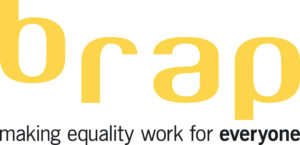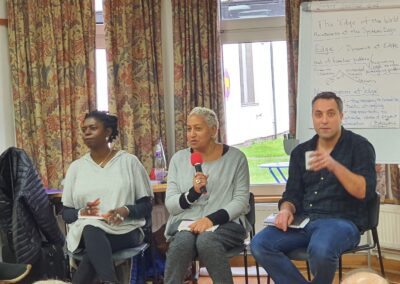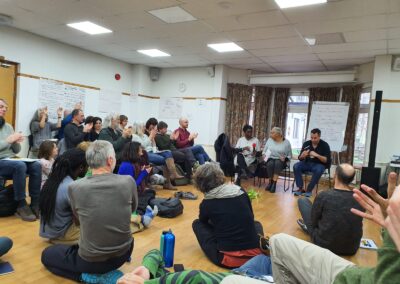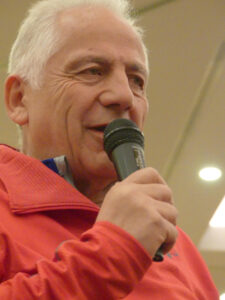Structural discrimination and structural racism refers to how groups are marginalised and disadvantaged, due to discriminatory practices that are embedded and normalised throughout society. Structural racism involves the constant replication of discriminatory attitudes and practices based on unquestioned white dominance, and unquestioned white privilege.
Structural racism is not out there somewhere – in the ‘bad people’ or overtly racist individuals and organisations. It is not about individual acts of prejudice or racism. Rather, it is more subtle and pervasive, embedded in all of our interactions – These systemic dynamics recur at every level of interaction. You can find dynamics of white supremacy inside your own mind; or in relationship; in your organisation; in your neighbourhood or community; in your identity group, as well as embedded throughout the institutions of our broader society, such as the media, criminal justice system, educational systems, political systems and more.
For a process to be that embedded, it didn’t start yesterday. For a process to be almost invisible to those who have the advantages or privileges of that system it is continuous and normalised. Structural racism is the legacy and perpetuation of historic atrocity. While many of us want to say – “hey isn’t that all in the past, let’s put the past behind us”, the problem is that history is not in the past. It is replicating at every moment.
All of our work at CFOR is aimed at processing history, to ‘stop the world’, to interrupt the cycles of history. To discover the potential for us to become aware personally and collectively – that we might address issues of accountability and collective trauma, and interrupt the repetition of history in our momentary interactions. And with this increased awareness, discover new directions and pathways forward.
The systemic and pervasive nature of structural racism, and the self-perpetuating nature of white privilege make it a very tall order to bring awareness into these dynamics. The current rise in the Black Lives Matter movement is extraordinary and unprecedented. Amidst the pain and shock of our times, it brings a sense of hope, of outlook, that we may be in a true window of possibility – for increasing collective awareness.
But it feels important to remind ourselves that this surge of awareness in the Black Lives Matters movement did not come out of nowhere. There has been an immense cost and the cost continues – centuries and decades of work, pain and resilience, to rise up from the constant backlash.
The entrenched nature of structural discrimination means that all the different levels – political, social, institutional, community, relational and personal – are intertwined and simultaneous. So, in order to unravel the pervasive and systemic nature of structural discrimination, we need to also bring awareness to all of these levels. Facilitating awareness at any one level can inform or transform these dynamics at other levels. A useful starting point is to ask ourselves how are we impacted by, and how are we perpetuating the very systems we are trying to facilitate.
Truth and Reconciliation
In our Europe Matters – You Matter programme, we’ve worked for many years around the need to process our colonial past, its legacy and its on- going impact all over the world, and in relation to attitudes within Europe towards immigrants and refugees, and xenophobia and structural racism. With the current rise of the Black Lives Matter movement, these issues are coming to the table, to the news, and into our mainstream conversations.
In the United States, we’ve been very inspired by the work of Bryan Stevenson (Equal Justice Initiative) and others, who are bringing to the table the need for a national reckoning, to build some kind of truth and reconciliation process, about our history and legacy of slavery, segregation, lynchings, and the ongoing mass incarceration of African Americans. And in the USA and Canada, there is the start of a terribly needed reckoning, about the reality upon which the nations are built, the genocide of Native Americans.
In the UK, we have partnered with brap (www.brap.org.uk) a leading charity ‘transforming the way we think and do equality’.
Our two organisations, brap and cfor, have come together in a kind of ‘think tank’, to address the complexities of facilitating awareness around issues of racism, and other issues of diversity. We are studying the kinds of intractable dynamics that we meet when trying to process issues of racism and other isms, and are studying pathways forward. We came together for the purpose of our mutual learning as organisations devoted to facilitating awareness and community relationships. And we hope to compile and contribute our learning, for the benefit of institutions in the UK and internationally.








